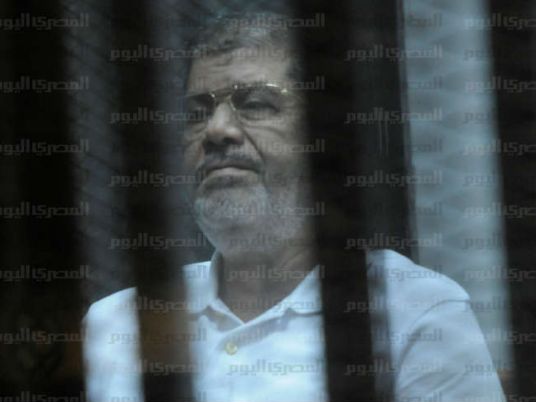The results of the constitutional referendum, and other concomitant developments in the political landscape, have shown both the government and the opposition's failure to come up with any acceptable and sustainable formulas of coexistence.
The president’s decision to hold the referendum in spite of wide opposition, the judges’ endless hesitancy to play an effective role as supervisors of the referendum, their heaping of pressure on the president who became their chief political adversary, the opposition’s insistence on some constitutional changes before holding the referendum, Sheikh Hazem Salah Abu Ismail’s conspiracy-theory retaliation against the media and other political parties to assert himself as a key player within the Salafi camp, the army’s new backseat strategy that manipulated all parties to get a favorable Constitution endorsed — all these are signs of the confused course of action during the last weeks.
The notion of crisis is becoming a structural feature of the political sphere. There is a lack of agreement about the rules of the game among the “formal” players, let alone among the “informal” ones, such as those leading social movements or the newly formed independent trade unions.
Against that backdrop, two scenarios of action have emerged after the referendum. The first represents the maximalist case: The Muslim Brotherhood’s policies are seen to have lost all legitimacy. Hence, public mobilization is deemed necessary to bring down the regime at once to restore some political ground that would be used to start a genuine process of democratic transformation.
The second scenario is a much more minimalist one and better conforms to the rules of representative democracy. Here, elections are regarded as the tool to respond to the extremely authoritarian measures the Brotherhood use in dealing with the entire opposition in the name of defending the demands of the revolution.
However, the underlying common assumption in both scenarios is that the majority of people are willing and ready to bring down “the supreme guide’s state,” referring to the Brotherhood leader. Proponents of both scenarios are under the impression that the protesting crowds are ready to bring down the regime, either through street protests or the electoral process.
Totally carried away, proponents of both scenarios seem to lack any fact-based readings of the political mood and priorities of Egypt’s citizens.
Actually, the popular discontent that has been provoked by the president and the government’s political and economic policies is not yet enough to bring down the regime. Furthermore, it most probably does not aim at such action in the near future.
On the other hand, all estimates of the possible protest vote against the Brotherhood seem neither accurate nor detailed enough to enable opposition parties to come together in proper alliances based on clear foundations and a complementation of roles.
What is to be done?
I believe there are two immediate challenges that should be addressed as soon as possible before gearing up for the elections. The first challenge is to change the emphasis from denunciating various “signs” of the Brotherhood’s authoritarianism — such as the constitutional declaration, the law organizing protests and the future of economic policies — to a focus on the structural “roots” that allowed the Brotherhood to adopt such extreme authoritarian measures.
Here, the opposition is wasting a golden opportunity to uncover the trade of interests between the Brotherhood and the military institution. It also risks much of its revolutionary legitimacy by failing to reveal the responsibility of the regional and international players that supported the new Brotherhood shifts.
The second challenge is the increasing inability of the revolutionary opposition to use multiple levels of actions to maximize their pressure as a coherent and united oppositional pole.
The disconnect between the various political options remains complete. Calls for escalation and violent confrontation remain entirely isolated from calls for more organized partisan action and for parlaying popular anger into a massive protest vote, even though the two options should dovetail for greater impact.
The opposition, be it the National Salvation Front or other more radical groups, should not hold the Brotherhood alone accountable, but rather the entire regime. Also, the opposition(s) should highlight the expected impact of the Brotherhood’s upcoming economic and social policies on the poorest social strata.
Finally, the opposition should focus on strengthening institutionalized bodies such as trade unions, syndicates and NGOs, as well as loose structures such as nascent social movements, to widen and diversify counter power calls.
If the opposition succeeds in this regard, its strategy, including the tactics it will employ in the forthcoming parliamentary elections, will transform from a polarized zero-sum game into one test in an incremental approach that might eventually disrupt the new imposed rules of any post-authoritarian game, through a series of micro conflicts.
Getting out of the narrow terrain of the constitutional crisis and to the wider horizons of setting up new rules for the game is the healthier choice in the post-referendum stage. The goal is to continue the revolution, bolster the opposition and end the isolation imposed on the social actors who gave momentum to the revolution over the past two years.
Dina el-Khawaga is a professor in the Cairo University Faculty of Economics and Political Science, and programs director at the Arab Reform Initiative in Paris.
This article was translated by Dina Zafer.
This piece was originally published in Egypt Independent's weekly print edition.

